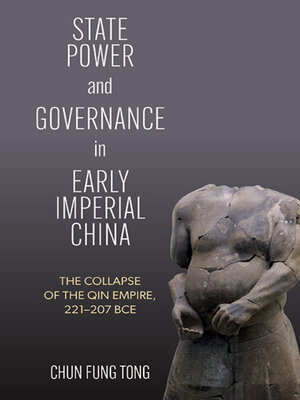State Power and Governance in Early Imperial China
ebook ∣ The Collapse of the Qin Empire, 221–207 BCE · SUNY Series in Chinese Philosophy and Culture
By Chun Fung Tong

Sign up to save your library
With an OverDrive account, you can save your favorite libraries for at-a-glance information about availability. Find out more about OverDrive accounts.
Find this title in Libby, the library reading app by OverDrive.



Search for a digital library with this title
Title found at these libraries:
| Loading... |
State Power and Governance in Early Imperial China delves into the governance and capacity of the state by providing an empirical historical study of the collapse of China's Qin Empire. In contrast to the popular view that the Qin fell suddenly and dramatically, this book argues that the collapse was rooted in persistent structural problems of the empire, including the serious resource shortages experienced by local governments, inefficient communication between administrative units, and social tensions in the new territories. Rather than reducing Qin rulers to heartless villains who refused to adjust their policies and statecraft, this book focuses on the changes that the regime did make to meet these challenges. It reveals the various measures that Qin rulers devised to solve these problems, even if they were ultimately to no avail. The paradox of the Qin Empire seemed to be that, although the regime's policies and reforms could theoretically have strengthened the state's power and improved the governance of the empire, their ramifications simultaneously exacerbated the misfunction of local governments and triggered the military failures that eventually destroyed the empire.






